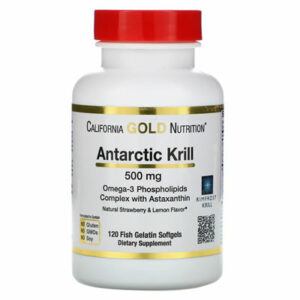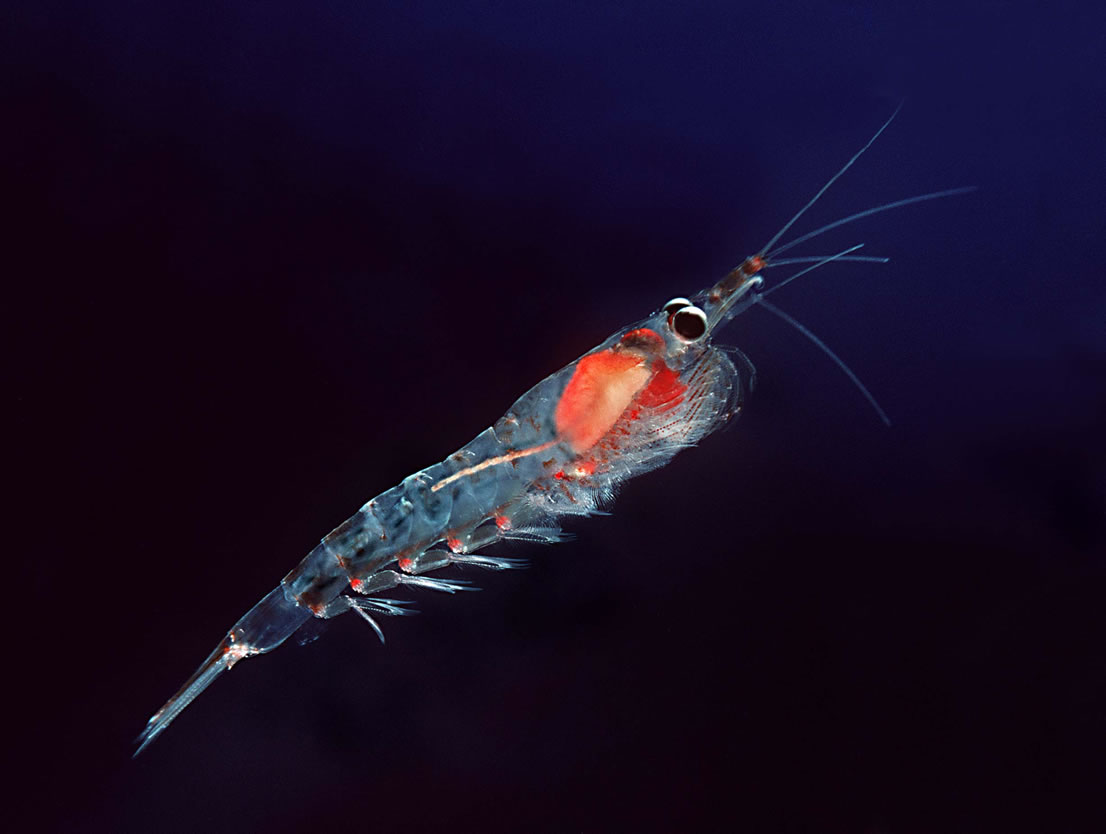Krill oil is a very hot omega-3 health food in recent years. It is mainly extracted from Antarctic waters. It is a small red krill. Because it’s located in the lower part of the food chain, it is less likely to have heavy metal pollution residues and the problem of depletion of marine resources.
Do you know krill oil benefits and side effects?
Krill oil is special because of its special fatty acid structure, about 30% to 65% is in the form of phospholipids (mainly phosphatidylcholine, also known as lecithin), and the fat in fish oil is mainly triglyceride Fat (triglycerides) form.
Unlike triglycerides, phospholipids are the main structure of cell membranes, and also an amphiphilic molecule (amphiphile) with emulsifier function, so it is generally believed that the human body utilization rate will be higher.
But as of now, there is no definite conclusion as to whether the bioavailability of krill oil is better than fish oil, and it needs to be verified by more accurate research in the future.
Table of Contents
- What are the benefits of krill oil?
- Are there any side effects of krill oil?
- Where to buy the most popular krill oil health products?
What are the benefits of krill oil?
1. Improve knee pain
Knee pain is the most common health problem for the elderly, and it often seriously affects mobility. It is estimated that the population over 50 years old has a prevalence rate of 46.2% (about 32% for men and about 58% for women). It can be said that the longer you live.
A double-blind controlled study pointed out (30 days, the subject is 50 patients with mild knee pain), compared to placebo, krill oil helps to improve pain, stiffness and left and right knee joint flexibility (Japanese knee Judgement of arthritis (JKOM) and Japan Orthopaedic Association Scoring System (JOA) are the judgment criteria).
In addition, the same study also observed an increase in the value of omega-3 in the blood and reduced the ratio of omega-6 to omega-3, which helps to inhibit the production of pro-inflammatory hormones.
*Conclusion: For mild arthritis, oral krill oil has a positive effect on improving symptoms.
2. Improve immune suppression after exercise
Compared with the sedentary lifestyle, regular moderate exercise is beneficial to the immune system and can reduce the incidence of respiratory infections.
However, prolonged high-intensity intense exercise (for example, marathon or long-distance cycling) often leads to temporary suppression of immune function (immunosuppression), which usually lasts for 3-24 hours, greatly increasing the chance of upper respiratory tract infection.
A randomized double-blind controlled trial (6 weeks, 37 healthy adults) pointed out that compared with placebo, oral krill oil can help improve the immune status after vigorous endurance exercise (peripheral blood mononuclear cell (PBMC) and natural killer cell (toxic activity)), but it cannot improve athletic performance.
*Conclusion: Eating krill oil cannot improve exercise performance but may help improve the immune suppression state after strenuous exercise.
3. Beneficial regulation of blood lipid status (Hyperlipidemia)
Hyperlipidemia usually refers to abnormal values of one or more lipids in the blood, and high cholesterol is the most common cause of genetic, smoking, obesity, uneven diet, and sedentary.
It is estimated that one out of every three adults in the United States has dyslipidemia, which can cause vascular variability for a long time and increase the incidence of cardiovascular disease by about 2 times.
A systematic literature review and meta-analysis (including 7 studies, 662 participants) pointed out that krill oil, in addition to helping to reduce low-density lipoprotein cholesterol (LDL-C) and triglycerides in the blood (TGs) can also increase high-density lipoprotein cholesterol (HDL-C), which may be used as an adjuvant therapy option for patients with high blood fat.
The underlying mechanism may be related to the regulation of mitochondrial respiratory chain (mitochondrial respiratory chain) and inhibition of fat, cholesterol, and liver glucose production pathways.
*Conclusion: Krill oil has the effect of regulating blood lipids, but it is limited by the heterogeneity of the included studies and the small number of samples. More large studies are still needed to confirm further.
4. Beneficial cognitive function
The human body is a precise machine that operates all the time, and as time goes on, it is inevitable that the operation is not smooth or the function is aging.
In contrast, we are more likely to see aging from the appearance, such as white hair, wrinkles, and inconvenience, but in fact, the aging of the brain also occurs simultaneously, causing cognitive decline.
A randomized, double-blind controlled trial found that (12-week, 45-year-old male subjects), intake of krill oil and sardine oil can help activate the prefrontal cortex of the brain, promote working memory, thereby preventing the potential effect of cognitive deterioration (However, the effect of krill oil to improve computing power is more significant).
The author believes that this is because omega-3 fatty acids (krill oil) in the form of phospholipids are more effective for improving cognitive function.
*Conclusion: For the elderly, the use of krill oil may help activate the cognitive function, and the effect is better than fish oil.
5. Beneficial premenstrual syndrome
Premenstrual syndrome mainly occurs during the luteal phase of menstruation (from ovulation to menstrual cramps). It has been recorded that there are more than 200 physical and mental discomfort symptoms, and the causes are quite diverse, including hormonal imbalances, nutritional deficiencies or excess, Increased prostaglandin synthesis, imbalance of neurotransmitters, etc.
A double-blind controlled study pointed out (90 days, the target is 70 patients with premenstrual syndrome), krill oil and fish oil can help to improve the physical and mental discomfort related to premenstrual (weight gain, abdominal pain, edema, bloating), However, other indicators such as analgesic use, mood, breast tenderness, and joint pain show that krill oil has a greater improvement.
*Conclusion: Compared with fish oil, krill oil improves premenstrual syndrome more significantly.
Are there any side effects of krill oil?
Most studies have found that in the short term (less than three months), moderate consumption of krill oil is extremely safe, but it may still produce side effects similar to fish oil products, including heartburn, mouth odor, stomach upset, and nausea, Diarrhea and other phenomena.
Precautions
Do not use in pregnant women, breastfeeding women, or those with poor liver and kidney function (because the relevant safety is unknown).
Do not use if you have been allergic to seafood or related products (may cause allergic reactions).
Because omega-3 has an anticoagulant function, those who take abnormal anticoagulant drugs and take anticoagulant drugs two weeks before surgery should avoid it.
Where to buy the most popular krill oil health products?
In recent years, food safety problems in various countries have exploded, and it is not healthy but black-hearted products that everyone spends on. Therefore, European and American products with relatively strict quality control have become popular products.
And iHerb.com is a large-scale medical cosmetics e-commerce company in the United States. It has a high satisfaction rate of 97% in the evaluation of Google customers. It provides global home delivery so that you can buy it without risking buying fakes through purchasing high-quality health products.

